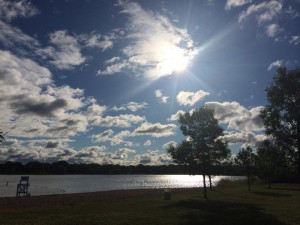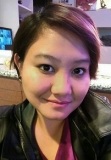
Growing up in a Hmong family with 3 other brothers and 1 sister was a real struggle to get by as my parents and close family members expected so much of me to succeed just like my uncle. I was born the second son in our family of 7, including my parents. Here is my story… Ever since I could remember, my family had always praised me to be the brightest, and a person who would always listen to their parents. With this in mind, I couldn’t bear to disappoint them by telling them that I like boys. I, along with close family members and friends, had always knew that I was different.

Having only one sister in the family, my mother had always spoiled her since she was the only daughter. My mother was always buying her pretty dresses, jewelry, makeup products, and all the accessories little girls loved. Of course, you can pretty much guess how jealousy had just taken a hold on me. So, I questioned myself about why I felt this way. I hated myself and I wanted to cry because being a boy, I can’t have girly things.
During second grade, I knew I had feelings for other boys in my class. I wanted to only hangout with them, to be put in the same group as them, and wanted to spend my entire day with them. This was all I could ever think about. Sadly, I didn’t understand my feelings at the time and I kept thinking to myself if this sensation of infatuation, only a phase. I thought I was living a normal life. As I got older, I understood the term gay and that was when I started to label myself as gay. Although, I was still unhappy with the term gay because it didn’t suit me well. I hid myself in the dark corner of my mind and even persuaded myself that I was not gay. Afraid to be known as feminine, I would exclude myself from society and my classmates throughout my entire grade school education. Every friend I made, knew or assumed that I was gay due to my feminine voice, while at that time, I never knew that I wanted to become a woman.
When I was 20 years old, I was introduced to the term transgender and increased my vocabulary to define myself. The moment I heard the word, I immediately searched and googled the term many times. The feelings I received from knowing transgender was so overwhelming and I couldn’t wait any longer, because that was the day my life as a boy ended. From there on out, I considered myself as a woman and I have been living as a woman since that day.
 Kimora Cha is 26 years old and identify as a Hmong transgender woman from Sacramento, California.
Kimora Cha is 26 years old and identify as a Hmong transgender woman from Sacramento, California.
Celebrate June PRIDE Month by contributing your narrative to be part of AAPI LGBTQ PRIDE Narrative Series. If you identify as AAPI LGBTQ and want to contribute your narrative or have questions, please email Linda for more information – linda@mwsmovement.com
 Phiengtavanh is currently living in Ramsey County – employed as the data entry specialist to the Family Health Division of Ramsey County Public Health and working part-time as a Private Charter Screener for G2 Secured Staff. In her spare time, she continues to enjoy time with family and friends while participating in various events with the National Asian Pacific American Women’s Forum. Phiengtavanh is one of the recipients of the Minnesota 25 Veterans’ Voices Award in 2013 for her accomplishment within her community and society.
Phiengtavanh is currently living in Ramsey County – employed as the data entry specialist to the Family Health Division of Ramsey County Public Health and working part-time as a Private Charter Screener for G2 Secured Staff. In her spare time, she continues to enjoy time with family and friends while participating in various events with the National Asian Pacific American Women’s Forum. Phiengtavanh is one of the recipients of the Minnesota 25 Veterans’ Voices Award in 2013 for her accomplishment within her community and society.








